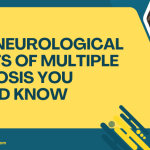Table of Contents
- Introduction
- 1. Promising Drug Therapies
- 2. Advances in Biomarkers
- 3. Breakthroughs in Gene Therapy
- 4. Innovative Non-Pharmacological Interventions
- 5. The Role of Gut Microbiome
- Conclusion
- FAQs
Introduction
Alzheimer’s disease continues to be a significant challenge globally, affecting millions of individuals and their families. However, as we step into 2024, the horizon looks promising with groundbreaking research that aims to not only improve our understanding of this complex disease but also to find effective treatments. Let’s dive into the top five breakthroughs that are shaping the future of Alzheimer’s research.
1. Promising Drug Therapies
Recent developments in drug therapies have shown great potential in slowing the progression of Alzheimer’s disease. Notably, Aducanumab (Aduhelm) stirred considerable debate upon its approval. However, newer entrants like Lecanemab (Leqembi) and Donanemab are now being studied for their efficacy in clearing amyloid plaques in the brain, which are often associated with Alzheimer’s.
“Drug therapies are not just about treating symptoms; they aim to modify the disease course itself.”
Key Points:
- Aducanumab works by targeting amyloid-beta, a protein that forms plaques in the brains of Alzheimer’s patients.
- Lecanemab has shown promise in clinical trials, demonstrating the ability to slow cognitive decline in early-stage Alzheimer’s patients.
- Donanemab, another monoclonal antibody, is in phase III trials and aims to remove both amyloid plaques and tau tangles, another hallmark of the disease.
Visual Element: Drug Therapy Comparison Table
| Drug Name | Mechanism | Current Status |
|---|---|---|
| Aducanumab | Targets amyloid plaques | Approved |
| Lecanemab | Targets amyloid plaques | Early approval expected |
| Donanemab | Targets amyloid and tau | Phase III trials |
For more detailed information, you can check out this FDA resource.
2. Advances in Biomarkers
Biomarkers are vital for early diagnosis and monitoring the progression of Alzheimer’s disease. Recent studies have identified new biomarkers that can detect Alzheimer’s earlier than ever before. The use of blood tests to measure specific proteins associated with Alzheimer’s is particularly exciting.
“Early detection is key to effective intervention; biomarkers are our best tools in this fight.”
Key Points:
- Neurofilament light chain (NfL) levels in blood have emerged as a promising biomarker for detecting neurodegeneration.
- New imaging technologies such as PET scans allow for more accurate visualization of amyloid and tau deposits in the brain.
- The development of portable testing kits could revolutionize how we diagnose Alzheimer’s in primary care settings.
Visual Element: Biomarker Development Timeline
| Year | Discovery |
|---|---|
| 2018 | NfL as a potential biomarker |
| 2020 | Advances in PET imaging |
| 2024 | Portable blood tests expected |
For further reading, visit the National Institute on Aging.
3. Breakthroughs in Gene Therapy
Gene therapy is rapidly emerging as a cutting-edge approach for treating Alzheimer’s. Recent studies have focused on manipulating genes to enhance the brain’s ability to fight off the disease’s effects.
“Gene therapy represents a paradigm shift in how we think about treating Alzheimer’s.”
Key Points:
- Researchers are exploring the use of CRISPR technology to edit genes that contribute to Alzheimer’s risk.
- Early trials have shown that introducing specific genes can enhance the production of protective proteins in the brain.
- Collaborative efforts are underway to understand the genetic factors contributing to familial Alzheimer’s disease.
Visual Element: Gene Therapy Impact Chart
| Approach | Potential Benefit | Current Research Stage |
|---|---|---|
| CRISPR Gene Editing | Reduces risk factors | Early-phase trials |
| Gene Introduction | Enhances protective proteins | Ongoing studies |
For more insights, check out the Alzheimer’s Association.
4. Innovative Non-Pharmacological Interventions
While drug therapies are crucial, non-pharmacological interventions are gaining traction as effective methods to improve the quality of life for those with Alzheimer’s. These approaches are beneficial for patients and caregivers alike.
“Sometimes the best treatments are those that do not involve medication at all.”
Key Points:
- Cognitive training programs are showing promise in enhancing memory and cognitive functions.
- Physical activity has been linked to reduced cognitive decline, encouraging researchers to design tailored exercise regimens.
- Music therapy is being studied for its ability to evoke memories and improve mood in Alzheimer’s patients.
Visual Element: Non-Pharmacological Interventions Overview
| Intervention | Benefits | Example Programs |
|---|---|---|
| Cognitive Training | Enhances memory | Brain games, puzzles |
| Physical Activity | Reduces cognitive decline | Tailored exercise routines |
| Music Therapy | Evokes memories | Music sessions with caregivers |
For more details, visit Alzheimer’s Society.
5. The Role of Gut Microbiome
Emerging research suggests that the gut microbiome may play a significant role in Alzheimer’s disease. The connection between gut health and brain health is a fascinating area that scientists are exploring.
“The gut-brain axis is more than just a theory; it could be a key factor in Alzheimer’s prevention.”
Key Points:
- Studies indicate that an imbalance in gut bacteria may influence inflammation in the brain, potentially contributing to Alzheimer’s.
- Probiotics and dietary changes are being researched as potential preventive measures.
- Ongoing trials aim to determine whether modifying gut microbiota can positively impact cognitive function.
Visual Element: Gut Microbiome Impact Diagram
| Factor | Effect on Alzheimer’s |
|---|---|
| Gut bacteria balance | Reduces inflammation |
| Diet changes | Supports brain health |
| Probiotic use | Potential cognitive benefits |
For more information, you can read about the latest research on the National Institutes of Health.
Conclusion
As we look into 2024, the advancements in Alzheimer’s research bring a sense of hope and optimism. From innovative drug therapies and biomarkers to the promising fields of gene therapy and gut health, researchers are working tirelessly to provide effective solutions. While challenges remain, these breakthroughs are paving the way for better diagnostics, treatments, and ultimately, a brighter future for those affected by Alzheimer’s disease.
FAQs
What is Alzheimer’s disease?
Alzheimer’s disease is a progressive neurological disorder that leads to memory loss, cognitive decline, and ultimately, the inability to carry out simple tasks.
How prevalent is Alzheimer’s disease?
Currently, around 6.7 million Americans age 65 and older are living with Alzheimer’s, and this number is expected to rise significantly in the coming years.
Are there any lifestyle changes that can help prevent Alzheimer’s?
Yes, maintaining a healthy diet, engaging in regular physical activity, staying socially active, and keeping the brain engaged can potentially reduce the risk of developing Alzheimer’s.
Where can I find more information on Alzheimer’s research?
You can explore resources from the Alzheimer’s Association and the National Institute on Aging for the latest news and research findings.
By staying informed about the latest developments in Alzheimer’s research, we can all play a part in supporting those affected by the disease. Let’s continue to advocate for research and awareness as we strive for a future free of Alzheimer’s.






